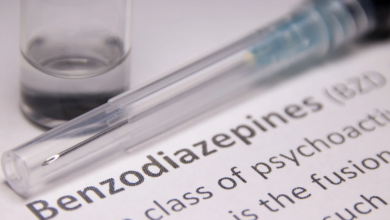Common Myths in Gastroesophageal Reflux Disease (GERD)

Gastroesophageal reflux disease (GERD) affects millions of people, yet it remains widely misunderstood. Myths and misinformation often complicate diagnosis and delay proper treatment. Individuals living with GERD reflux in Baltimore frequently experience discomfort, confusion, and ineffective home remedies based on misconceptions. Understanding what’s fact and what’s not is crucial for effective, lasting relief.
Myth 1: GERD Is Just Occasional Heartburn
Heartburn is a symptom, not a diagnosis. While occasional heartburn can result from dietary triggers or overeating, GERD is a chronic condition that involves the backflow of stomach acid into the esophagus. This often occurs several times a week and may lead to more serious complications like esophagitis, strictures, or Barrett’s esophagus if left untreated.
It’s important to note that GERD can present without heartburn at all. Some individuals experience chronic coughing, sore throat, or difficulty swallowing instead. That’s why professional evaluation is essential for distinguishing mild reflux from true GERD.
Myth 2: All Acidic Foods Are Off-Limits
Many people believe that avoiding all acidic foods is the key to managing GERD. However, trigger foods can vary significantly from person to person. While citrus, tomatoes, and coffee may exacerbate symptoms in some, others may tolerate them well. A personalized diet based on actual symptoms and response is more effective than generalized restrictions.
Understanding what to eat with acid reflux helps patients identify nutrient-rich foods that support healing without causing discomfort. These include options like oatmeal, lean proteins, and green vegetables, which are gentle on the digestive system and promote balance.
Myth 3: Medication Alone Will Cure GERD
Proton pump inhibitors (PPIs) and antacids may offer temporary relief by reducing acid production, but they do not correct the underlying mechanical issue, namely, the weakness in the lower esophageal sphincter. Long-term dependence on medication without lifestyle change or further evaluation may leave the root problem untreated.
In many cases, a combination of dietary modification, weight management, and behavioral changes leads to better outcomes. Surgery may be considered for severe or medication-resistant cases, but no solution works in isolation.
Myth 4: GERD Doesn’t Affect Sleep
Another common misconception is that GERD is only a daytime condition. In fact, acid reflux often worsens at night when lying down, as gravity no longer helps keep stomach contents in place. Nighttime GERD can disrupt sleep, increase inflammation, and prolong healing.
Research has highlighted the connection between GERD and sleep disorders, showing that untreated reflux can lead to frequent awakenings, reduced sleep quality, and fatigue. Elevating the head during sleep and avoiding meals close to bedtime can make a notable difference in nighttime symptom control.
Myth 5: You Can Self-Diagnose and Manage GERD
Because GERD symptoms overlap with other digestive and cardiac conditions, self-diagnosis can be dangerous. A persistent burning sensation may signal reflux, or something more serious like gallbladder disease or even heart issues.
Medical consultation is critical for proper diagnosis and treatment planning. Endoscopy, pH testing, or imaging may be required to assess the condition accurately. Treating GERD without professional input may mask symptoms or allow complications to develop unnoticed.
Conclusion
GERD is a manageable condition, but only when guided by accurate information and medical support. Debunking common myths, like oversimplifying heartburn, eliminating all acidic foods, or relying solely on medications, helps individuals make informed choices and seek effective treatment. With professional insight and tailored care, those suffering from GERD can gain lasting relief and protect their long-term digestive health.






